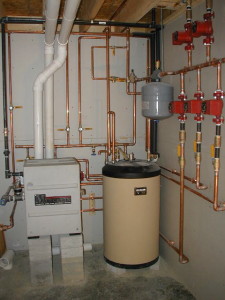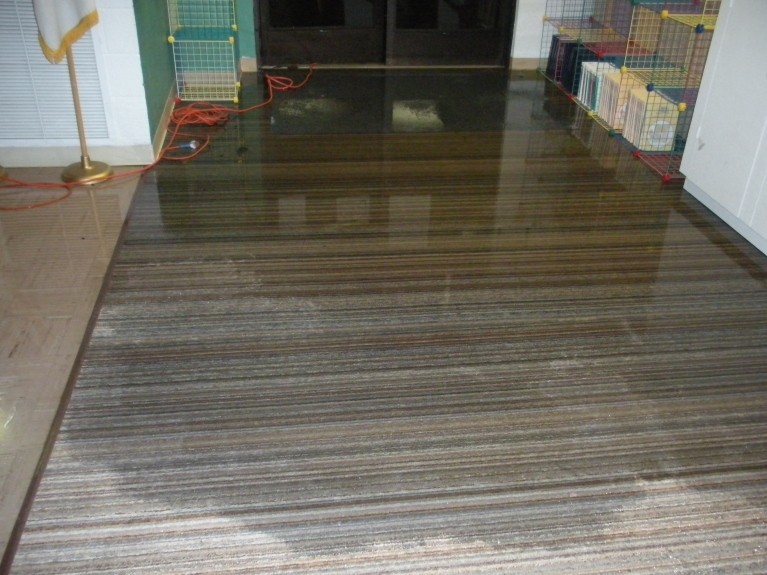Essential Steps for Homeowners When Faulty Hot Water Systems
Essential Steps for Homeowners When Faulty Hot Water Systems
Blog Article
Right here in the next paragraph you might get additional decent answers relating to How to Avoid a Broken Hot Water Heater.

Whether it lies in the cellar or a separate room, broken hot water heater can cause stress and anxiety. A conventional device holds 80 gallons, so an over night leak will certainly result in a flooding. This leads to major residential or commercial property damage with soaked wall surfaces and floors. Besides, having no warm water supply is likewise bothersome. If you are managing these problems, keep in mind of the following:
Call the Plumber
After doing the initial 2 security steps, you must call your plumber to come immediately to fix a fractured hot water heater. Keep in mind that your device will certainly not just conk out drastically overnight. There are typically indicators that your aging water heater has sediment buildup in the inside. Make note of the following:
Don't wait for significant flooding to call the plumber. By then, you will need to spend more to recover your property. Instead, as soon as you identify these signs, have an expert involved examine your hot water heater container. Usually, water heaters have a life-span of about 8 to 12 years. With regular inspection and maintenance, you can prolong its life.
Cut Off the Cold Water Supply
Cut off the tanks tap water supply from the source. This goes from your major water line right into the container. When your container remains in good condition, the cold water stops filling when the container is complete. But given that it is dripping, the water will continue to move. Shut the shutoff found on top of the heating unit. Revolve this clockwise to close it off. You must transform off that primary water supply line outside your property if you can not locate it or reach it.
Shut Off Power Source
Prior to calling the plumber, shut down a gas hot water heater by turning the temperature dial. This is generally situated at the top of the thermostat. If you have a model that works on electrical power, turn off the breaker. This will certainly avoid electrocution, specifically if there is a leak as water is a conductor. Typically, the heating element turns off when the water hits a certain temperature. With a broken storage tank, it may malfunction. Cutting it off guarantees you remain risk-free.
Clean Up Property
After calling the plumber, paper damages by taking notes and also pictures so you can declare your home owner's insurance coverage. Eliminate any standing water to avoid mold as well as mold development. If you have a submersible water pump, utilize that to drain the water.
Remember, if you see any type of concerns with your water heating unit, call the pros right away. You can not take this trouble lightly due to the fact that a defective thermostat can elevate water temp to an alarmingly high degree, leading to accidental burns.
After doing the initial 2 security actions, you must call your plumber to come right away to repair a burst water heating unit. Instead, as quickly as you spot these indications, have a specialist come to examine your water heater storage tank. Before calling the plumber, shut off a gas water heater by transforming the temperature level dial. If you have a completely submersible water pump, utilize that to drain the water. Bear in mind, if you notice any kind of concerns with your water heating unit, call the pros right away.
Is My Water Heater Broken?
The Water Heater is Old
No appliance will last forever. This includes a home’s water heater. During its lifespan, residents are going to face a situation where a new water heater installation will be necessary. The biggest problem with this is that most people are not sure when their water heater expires. Not knowing this can lead to serious risks if the unit begins to act up due to old age.
Most makes and models of water heaters will last between eight and 10 years. While 10 years is the age when water heater replacement is highly recommended, the need to replace the unit may occur before this time or after. If the unit doesn’t show any symptoms of a problem, it is a good idea to replace it at the 10-year mark (from the manufacture date).
Some of the symptoms that indicate a new unit is needed include rusting, leaks, noises, and a failure to heat up the water. Also, note that not all units have a 10-year life expectancy. The main exception to this rule is that a gas unit will last for six to eight years.
Rusty Heater Inlet Valve or Water
While steel is the strongest material on earth, it does have a weakness – rust. If corrosion occurs on a steel surface, it will begin to spread and eat through the steel in certain areas. On water tanks and pipes that are made of steel, rust is a warning sign of an impending leak.
The issue for many is trying to figure out if the rust is coming from the water heater or the pipes that lead to the faucet. If rust is seen, it is a clear indication that water heater service from the professionals is needed.
If rusty water appears out of the faucets in the bathtub or sink, it likely means a rusty water heater. If there is rust near the water inlet or the pressure relief valve, rust has likely developed inside the tank. If tap water appears rusty, it may be an issue with the pipes.
Strange Sounds from the Water Heater
Are there strange sounds coming from the tank? As a water heater gets older, rumbling noises may develop and get louder and louder as the water in the tank heats up. In homes where large amounts of hot water are used, the issue is likely going to be even more obvious when more serious issues arise. If there is a strange or loud noise coming from the unit, it is probably because of sediment buildup. A good way to remedy this problem is by flushing the heater. If this does not work, then a new unit may need to be installed.
Leaks
As a water heater gets closer to the end of its useful life, there is a higher chance there will be water around the tank. If there is water, this usually means leaks are occurring. Based on where the unit is located in the home, a leak may result in serious property damage.
Leaks are usually caused by expansions in the metal tank. The expansions occur as time passes and as the inside body of the tank is exposed to multiple heating cycles per day. When a fracture forms, the gap will be slight enough to hold the water in; however, in more serious situations, this will not be the case. If the tank is idle, the water will not leak but when the metal expands during each heating system, small amounts of water will get through the gap.

We were made aware of that report about Water Heater Burst from an acquaintance on our other domain. Are you aware of anybody else who is in to the niche? Please feel free to promote it. Bless you for your time. Visit again soon.
Protect your property, call! Report this page